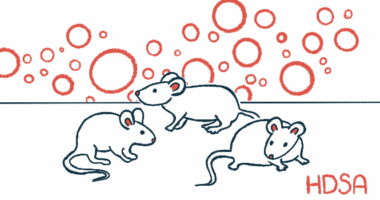Greater Sense of Purpose Can Predict Better Life Quality in Patients

People with Huntington’s disease who have a greater sense of purpose and meaning are more likely to find contentment in life and have better health-related quality of life, regardless of the severity of most of their symptoms.
That’s according to the study “Meaning and purpose in Huntington’s disease: a longitudinal study of its impact on quality of life,” published in the Annals of Clinical and Translational Neurology.
Research done in people with cancer has shown that interventions that aim to improve a person’s sense of purpose can meaningfully increase health-related quality of life, and help to protect against suicide and depression. This has led researchers to explore whether similar approaches might also be beneficial in other serious diseases like Huntington’s.
A study done in 2019 showed that, among Huntington’s patients, individuals with a greater sense of meaning and purpose (M&P) tended also to score highly for positive affect and well-being (PAW) — which generally refers to feelings of joy and contentment in life. However, whether a person’s symptoms affect this relationship was not clear.
Now, a team of scientists in the U.S. conducted an analysis of 322 people with Huntington’s-causing mutations: 171 had early-stage disease, 101 had late-stage disease, and the remaining 50 had prodromal disease (an early phase where there are some Huntington’s-like changes, but none of the motor symptoms that characterize the disease). Among the patients, slightly over half were male, and the vast majority were non-Latino whites.
Meaning and purpose was assessed using a standard test, HDQLIFE M&P, and positive affect and well-being was measured with Neuro-QoL PAW. Other measures were used to assess a range of other Huntington’s symptoms and emotional disturbances.
Statistical analyses revealed a significant correlation between meaning and purpose, and positive affect and well-being scores; in other words, people with high scores in one tended to have high scores in the other, and vice versa.
In other analyses, the researchers looked for factors that moderated this relationship, in a statistical sense.
Results showed a positive interaction with depression. In other words, in people with higher depression scores, the relationship between meaning and purpose, and positive affect and well-being was stronger than in those who were less depressed. By contrast, there was a negative association with chorea (involuntary jerking or writhing movements); people with more severe chorea tended to have a less strong relationship between meaning and purpose, and positive affect and well-being.
Other factors did not moderate the relationship, which suggests “that severe non-motor or motor symptomatology does not negate the positive relationship between M&P and PAW,” the researchers wrote.
The team also looked at the relationship between initial meaning and purpose scores and positive affect and well-being and other outcomes after one or two years. Results showed that people with higher meaning and purpose scores at the study’s start tended to have significantly higher positive affect and well-being scores, as well as less anxiety, depression, and anger, after one or two years.
Higher initial meaning and purpose scores also were associated with significantly slower decline in cognitive function over the course of two years.
“Baseline M&P predicts future [health-related quality of life], especially the emotional and cognitive domains,” the researchers wrote.
Given the strong connection between high meaning and purpose, and better positive affect and well-being and outcomes, “future efforts are warranted to adapt and develop meaning- and palliative- centered interventions” that can help people with Huntington’s feel more secure in a sense of their life’s meaning, the researchers concluded.
Due to the moderating relationships with depression and chorea, the scientists suggested that people with depression may be particularly likely to benefit from such interventions, whereas those with chorea might require additional help managing that symptom to get the full benefit from such interventions.
The team noted that, because of the study’s design, it’s impossible to draw cause-and-effect conclusions about these relationships. High meaning and purpose might lead to high positive affect and well-being, or the other way around, or some combination thereof. Another noted limitation of the analysis is that the team did not account for psychiatric medications or therapy, which could have influenced the results.







